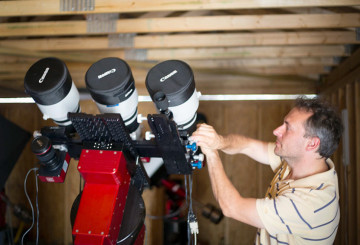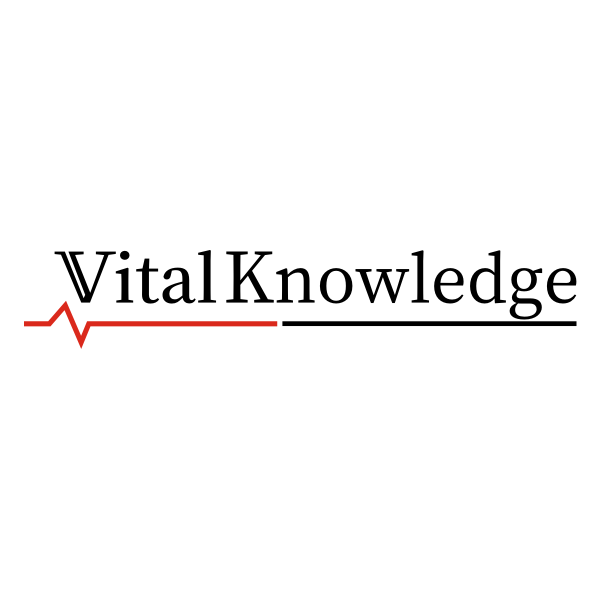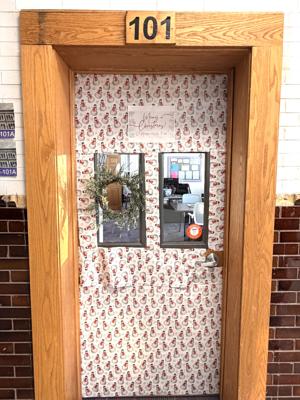Astrophysicist Pieter van Dokkum Joins Northwestern University

Renowned astrophysicist Pieter van Dokkum will join Northwestern University as the Kimberly Querrey Professor of Astrophysics in the Department of Physics and Astronomy at the Weinberg College of Arts and Sciences. The announcement was made today, revealing that van Dokkum will begin his tenure on January 1, 2027. He is celebrated for his pioneering work in galaxy formation and evolution, as well as his innovative contributions to astronomical instrumentation.
Currently serving as the Sol Goldman Family Professor of Astronomy at Yale University, van Dokkum is recognized for challenging established paradigms regarding how galaxies evolve over cosmic time. His research has significantly advanced the understanding of the universe, often revealing surprising insights into the characteristics and behaviors of galaxies.
Commitment to Research and Collaboration
As part of his role at Northwestern, van Dokkum will also become a member of the Center for Interdisciplinary Exploration and Research in Astrophysics (CIERA). University President Henry S. Bienen expressed enthusiasm over the appointment, stating, “I am thrilled to have Professor van Dokkum, one of the world’s leading astrophysicists, join Northwestern. He will immediately elevate our already groundbreaking research in Weinberg College and CIERA.”
The Kimberly Querrey Professorship was established through a generous gift from Kimberly K. Querrey, a trustee of the university, and aims to support interdisciplinary research within the institution. Bienen acknowledged Querrey’s impactful philanthropic legacy, highlighting her commitment to advancing scholarship and innovation.
“Professor van Dokkum’s appointment reflects Northwestern’s commitment to advancing discovery through bold ideas and world-class talent,” Querrey commented. Her contributions to research at Northwestern include the establishment of several research centers and endowed professorships across various scientific and business disciplines.
Innovative Contributions to Astrophysics
Among van Dokkum’s notable accomplishments is the co-development of the Dragonfly Telephoto Array, a groundbreaking telescope located in New Mexico. This innovative instrument is designed to detect faint light emitted from galaxies’ outer halos, which traditional telescopes often overlook. The Dragonfly Telephoto Array, inspired by the compound eyes of a dragonfly, consists of 48 lenses and has opened new avenues for discovering previously unseen cosmic phenomena.
Van Dokkum’s work with the array has led to the discovery of large, hidden galaxies with unexpectedly few stars and has challenged the prevailing notion that all galaxies contain dark matter. Currently, he is upgrading the array to include 1,140 telephoto lenses for a new project called the Modular Optical Telephoto Hyperspectral Robotic Array (MOTHRA), located in the Atacama Desert in Chile. This upgraded instrument aims to detect the Cosmic Web, a network of dark matter believed to connect all galaxies.
“I am greatly looking forward to joining the Northwestern community and CIERA,” van Dokkum stated. “CIERA’s collaborative, cross-disciplinary culture is a great environment for discovery, and I’m excited to bring the Dragonfly Telephoto Array and the new MOTHRA telescope into that ecosystem.”
Throughout his career, van Dokkum has collaborated with major space observatories, including NASA’s Hubble Space Telescope and the James Webb Space Telescope (JWST). His research has significantly contributed to understanding phenomena like supermassive black holes and the early formation of star-filled galaxies.
As he transitions to Northwestern, van Dokkum’s expertise and innovative spirit are expected to enhance the university’s research capabilities. Vicky Kalogera, director of CIERA, noted, “His arrival marks an exciting moment for Northwestern, and a defining one for our department and for CIERA.”
In addition to his research, van Dokkum has demonstrated exceptional mentorship at Yale, where he received the Natural Sciences Graduate Mentor Award in 2020 for his dedication to student development. His extensive publication record includes nearly 790 papers, and he has received numerous accolades, including the Jackson-Gwilt Medal and the Maria and Eric Muhlmann Award.
As Northwestern prepares for van Dokkum’s arrival, the academic community anticipates that his leadership will not only advance scientific inquiry but also inspire future generations of researchers in the field of astrophysics.






